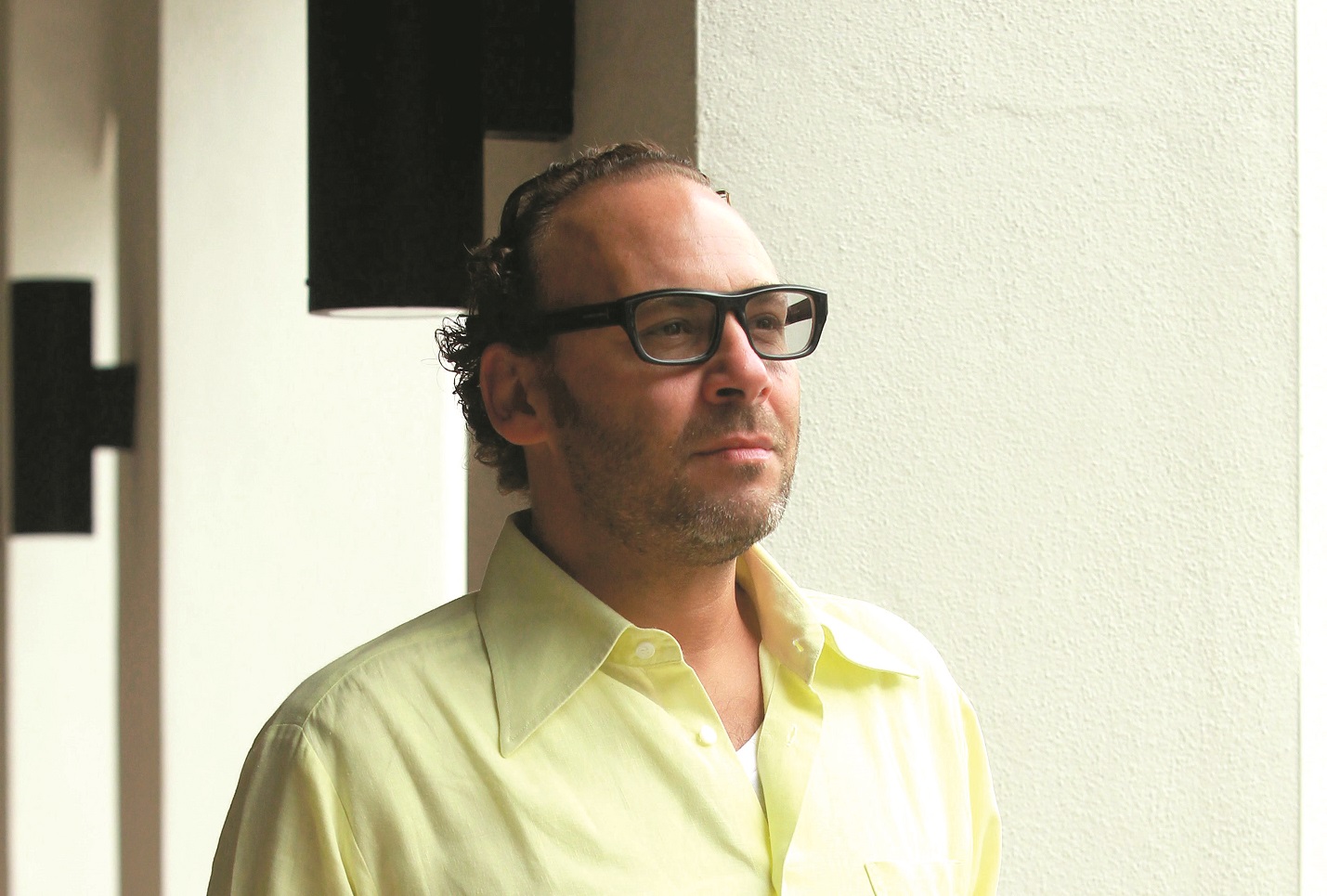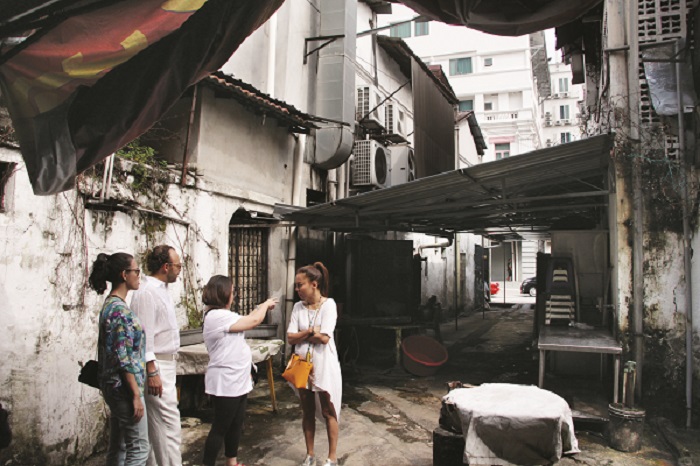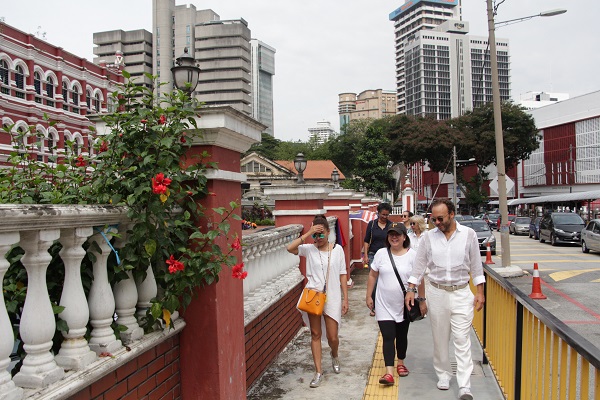
Stepping into the lobby of Hotel Stripes on a quiet morning at the normally bustling Chow Kit area in Kuala Lumpur, there was a sense of aptness to the location of my breakfast meeting with Emmanuel Benbihy. The French producer is the mastermind behind the Cities of Love film franchise, which started with Paris, je t’aime — or more universally known as Paris, I Love You — in 2006.
Admittedly, I was more than a little intrigued when the exclusive one-on-one invitation came in. Are we set for a “KL, I Love You” feature film? Well, yes and no, not yet.
In all fairness, the Cities of Love films — after Paris, I Love You, there was the relatively well-received follow-up New York, I Love You in 2008 — have not consistently wowed. Nevertheless, the first two films did do enough to generate momentum for Rio, I Love You and Tbilisi, I Love You in 2014, while Shanghai, Jerusalem and — reportedly — Berlin, New Orleans, Delhi and Venice are in the works.
It would take an hour before I managed to unravel the “ecosystem” behind the creation of these films. But before that, Benbihy and I settle down to talk about his favourite topic — film and cinema.
“The goal is to make one film,” he says, when we talk about the franchise’s concept of short stories linked together by transitions, which incidentally are shot in multiple scenarios with the final sequence only decided upon during the editing process. “But the usual formats, which tend to be three different short films of 20 minutes each, are too long. With Paris, we realised we had to stay short — only five to seven minutes per segment. So, if they don’t like one of them (the segments), they could still move on,” he says.
Throughout our conversation, it is clear that Benbihy is passionate about film. He finds the current direction of the Hollywood film industry wanting, to say the least.
“I’m part of the first generation of people who had access to the VCR. When it came, it was a huge freedom … and I grew up in a dysfunctional family — instead of talking about our problems, we would watch movies. On a typical Friday night, we would watch four movies — 8pm, 10pm, midnight and 2am for those who could stay up,” Benbihy recounts with a laugh.

By his late teens, he expanded his voracious appetite for films beyond Hollywood to Japanese and Turkish movies, among others. When he moved to Los Angeles to work, it meant greater access to more movies and the industry itself. “That’s when I realised, there’s all these people I met in the film industry and yet many knew nothing about cinema. They only knew a few commercial films,” he remarks.
The experience motivated Benbihy to venture into the industry. After selling off the business he was running and returning home to Paris, he rented an office and spent a year or two researching filmmaking and the industry. Fed up with the direction of cinema’s commercial market that showed no sign of balance or turnaround, he began to explore formats that focused on diversity and different voices.
That’s when I realised, there’s all these people I met in the film industry and yet many knew nothing about cinema. They only knew a few commercial films
Paris, I Love You would become the ultimate culmination of that idea — 20 short films, in the 20 districts of Paris, made by 20 directors from all over the world. “I created a format that was like a feature film made out of pieces, but still built unity and diversity. It was perceived as another anthology that would not make money, because in the history of cinema, that was true, until Paris, I Love You,” he smiles.
It took Benbihy six years and 84 versions to craft the film as we know it. He says people thought he was crazy to spend US$5 million on short films. “If you look at the industry, people struggle with one director, five actors and two writers. But this was 20 cinematographers, 20 editors, 20 sets of actors. Now six years later, my movies have a budget of like €15 million, and open at the Cannes Film Festival.”
What is perhaps more impressive is how an unknown producer managed to get more than a handful of the industry’s biggest names involved, especially when the format was not a popular one at the time.
“Of course I got lucky. But at the same time, you need to have a vision. A lot of directors no longer enjoy making films. They enter the industry because they have much to say, but the end product is so compromised — after products, standardising, advertising and being put through the studio system, it’s not a film anymore.
“So imagine, I come and I tell them, ‘You’re coming to a city you may not know so well, but you’re telling a love story. It’s all financed. You can pick any DP (director of photography) in the world, any editor, any actor. You come, work for a month or so, and reconnect with the reason why you make films in the first place’,” says Benbihy.
This is part of the winning “formula” that has resulted in the producer-turned-consultant receiving invitations from many cities. Apart from the freedom and diversity in content creation — albeit with a 400-page production guideline crafted to help manage a complex shooting schedule and to ensure the standard of the films — the other, more covert, aspect is the motivation behind the Cities of Love franchise.

Which brings us back to Kuala Lumpur, and why he is here. Halfway through our chat, we are joined by director Dain Iskandar Said and his long-time producer Nandita Solomon. Together, they would go on to have their first official dialogue with potential stakeholders, community influencers and non-profit organisations after our meeting is over.
Their partnership comes after a chance encounter in Taipei, following which Dain and Nandita set the ball rolling to bring Benbihy’s Cities of Love ecosystem here.
Our conversation takes a somewhat philosophical turn, even as Benbihy outlines the unique marketing and financing model that he claims allowed for Rio, I Love You to earn a profit from the first ticket. To put it briefly, a good financing strategy involves keeping the engine running for their main mission — to impact the city for the better, he says.
“It is not coming here and saying, ‘I’m going to make a film about your city’. The secret to the success behind this is the love people have for this city. It is still completely untapped here. The film is not the goal. It is the catalyst — to start the ball rolling on the issues that are important to the city. It’s not just to extract them for two hours and entertain them. How does that benefit the city?” he argues.
Using the film as the vehicle, Benbihy says his role is to gather the right people and to provide a platform, and eventually, to hand over the baton. In this case, it is to the key players of the city — from foundations to corporations, content creators, non-profit organisations, curators and artists. Already, Think City has come on board to fund their kick-starting initiative.
It all sounds rather grandiose, but Benbihy makes a strong point: “To bring change, there must be a bottom-up strategy where people naturally engage and want to get involved. For that, there must be empowerment. If people are not empowered, they won’t even hear you amid their daily struggles, let alone feel positive or united about their city and its future. We want to create platforms to address topics relevant to the lives of people in KL, like education, empowering women, old age, food … Once we are ready, then we can talk about making a movie, one that will scream out to the world that we love KL.”
For more on the Cities of Love franchise, visit www.citiesoflove.com


